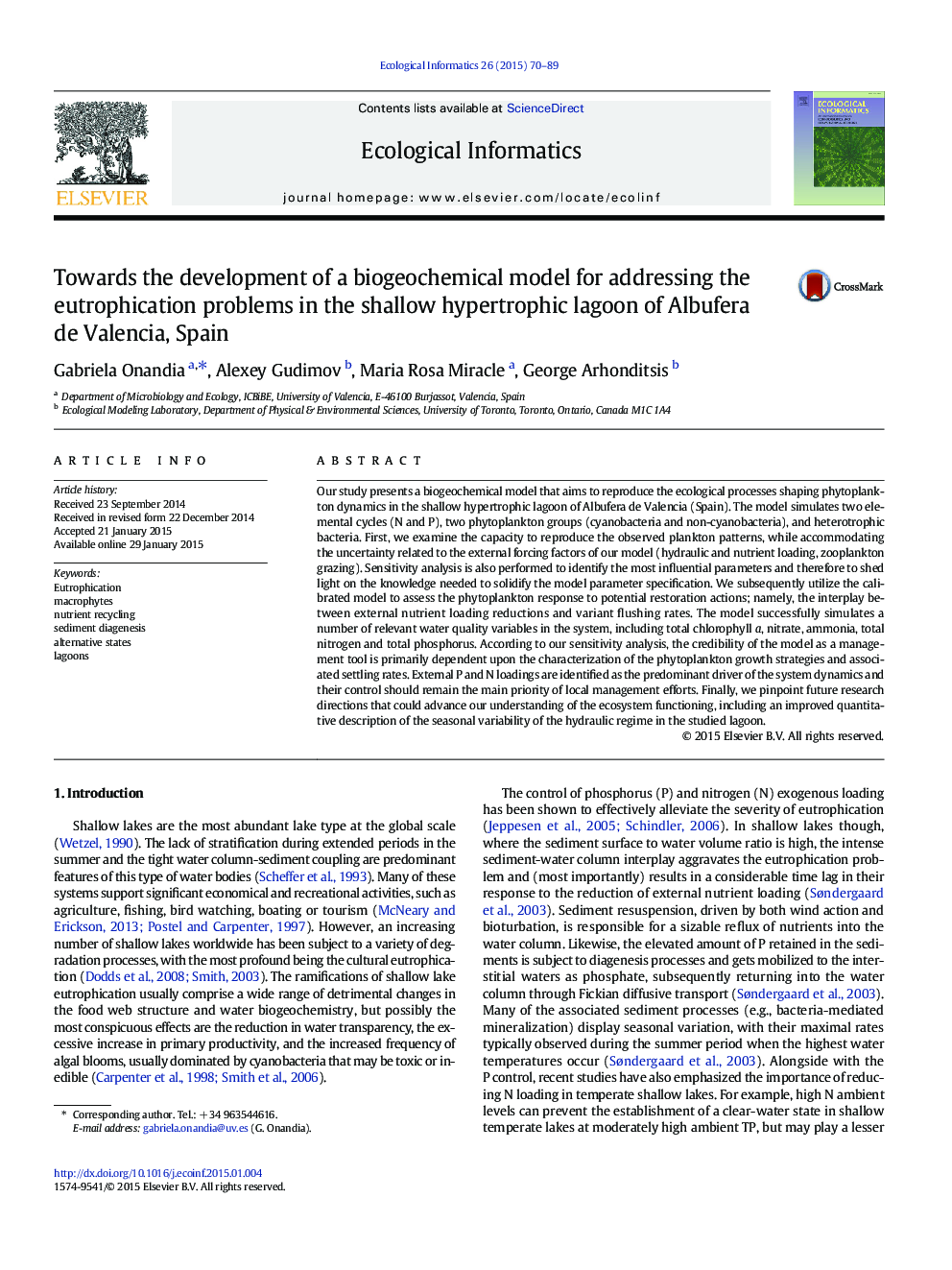| Article ID | Journal | Published Year | Pages | File Type |
|---|---|---|---|---|
| 4374828 | Ecological Informatics | 2015 | 20 Pages |
Abstract
Our study presents a biogeochemical model that aims to reproduce the ecological processes shaping phytoplankton dynamics in the shallow hypertrophic lagoon of Albufera de Valencia (Spain). The model simulates two elemental cycles (N and P), two phytoplankton groups (cyanobacteria and non-cyanobacteria), and heterotrophic bacteria. First, we examine the capacity to reproduce the observed plankton patterns, while accommodating the uncertainty related to the external forcing factors of our model (hydraulic and nutrient loading, zooplankton grazing). Sensitivity analysis is also performed to identify the most influential parameters and therefore to shed light on the knowledge needed to solidify the model parameter specification. We subsequently utilize the calibrated model to assess the phytoplankton response to potential restoration actions; namely, the interplay between external nutrient loading reductions and variant flushing rates. The model successfully simulates a number of relevant water quality variables in the system, including total chlorophyll a, nitrate, ammonia, total nitrogen and total phosphorus. According to our sensitivity analysis, the credibility of the model as a management tool is primarily dependent upon the characterization of the phytoplankton growth strategies and associated settling rates. External P and N loadings are identified as the predominant driver of the system dynamics and their control should remain the main priority of local management efforts. Finally, we pinpoint future research directions that could advance our understanding of the ecosystem functioning, including an improved quantitative description of the seasonal variability of the hydraulic regime in the studied lagoon.
Related Topics
Life Sciences
Agricultural and Biological Sciences
Ecology, Evolution, Behavior and Systematics
Authors
Gabriela Onandia, Alexey Gudimov, Maria Rosa Miracle, George Arhonditsis,
